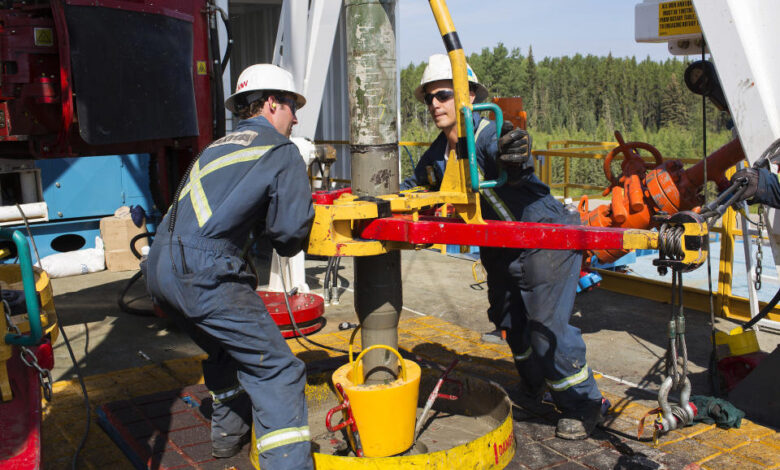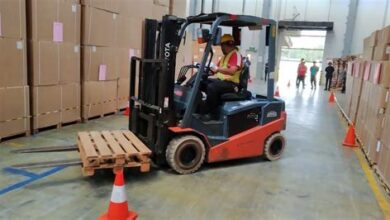
Canada’s oil and gas sector is a significant pillar of its economy, providing vast job opportunities and contributing to the nation’s energy independence. Immigrants from all over the world have found meaningful employment in this industry, thanks to Canada’s inclusive work policies and demand for skilled labor. The oil and gas jobs in Canada with visa sponsorship is for those looking to build a life that is extremely rewarding and with an additional benefit of easing through the immigration process in the country.
The demand for labor in the oil and gas sector is constant, ranging from engineers to laborers and administrative support. Many companies offer positions for entry-level workers, making it easier for immigrants with little experience but strong potential to join this vital industry. With the right qualifications, certifications, and the proper visa process, it’s entirely possible for new immigrants to secure jobs in this sector, enjoy competitive salaries, and build successful careers.
In this guide, we’ll explore the various entry-level jobs available to immigrants, the certifications required, visa procedures, salary expectations, and the best websites to find these opportunities. If you’re considering relocating to Canada and working in oil and gas, this detailed overview is for you.
Entry-Level Oil and Gas Jobs in Canada for Immigrants to Work
For immigrants new to the oil and gas industry, Canada offers several entry-level roles that can serve as stepping stones into the sector. Here are 10 key positions to consider:
1. General Laborer
As a general laborer, you’ll handle various manual tasks such as assisting with equipment setup, moving materials, and basic maintenance. While prior experience isn’t necessary, physical fitness and a willingness to work in challenging environments are essential. Many companies provide on-the-job training for laborers.
2. Rig Hand
Rig hands are responsible for maintaining drilling rigs, cleaning equipment, and assisting other crew members. This is a common entry-level position for immigrants looking to gain practical experience in oil extraction. Rig hands must be ready to work long hours in remote locations.
3. Warehouse Worker
In this role, you will assist in organizing, loading, and unloading materials, supplies, and tools necessary for drilling and production. Warehouse workers need to be organized and detail-oriented. This job typically requires little to no prior experience, making it ideal for new immigrants.
4. Field Operator
Field operators manage machinery and equipment used in the production of oil and gas. They monitor processes and ensure safety standards are followed. This role requires some technical knowledge, but many companies offer training programs that prepare immigrants for the responsibilities involved.
5. Truck Driver (Oil & Gas Transportation)
Truck drivers in the oil and gas sector transport crude oil, natural gas, and other materials to and from sites. With a commercial driver’s license (CDL), this position offers competitive pay and opportunities for advancement. Immigrants with previous driving experience can transition easily into this role.
6. Floorhand
Similar to rig hands, floorhands assist with the operations of drilling rigs. They help with pipe handling, rig maintenance, and other manual tasks. This is another excellent entry-level position for those seeking hands-on experience in oil and gas.
7. Service Technician
Service technicians perform routine maintenance on oil and gas equipment. While this position requires some technical knowledge, companies often provide training for immigrants eager to learn. Service technicians work both on-site and in workshops, offering a balance between fieldwork and technical tasks.
8. Pipeline Laborer
Pipeline laborers assist in the construction, maintenance, and repair of pipelines. This role involves a mix of manual labor and safety procedures, which are critical to the transportation of oil and gas. Pipeline jobs are available across Canada, especially in regions like Alberta and British Columbia.
9. Construction Laborer (Oil & Gas Facilities)
Immigrants with construction backgrounds can find opportunities building and maintaining oil and gas facilities. This role includes tasks such as site preparation, concrete work, and assisting skilled tradespeople. It’s a physically demanding job, but it provides valuable experience in the industry.
10. Safety Attendant
Safety attendants monitor compliance with health and safety regulations at oil and gas sites. They ensure that workers adhere to protocols and handle emergency situations. Although this role requires basic safety training, it offers entry-level opportunities for those interested in health and safety careers.
Certifications Needed for Employment
Although many entry-level jobs in Canada’s oil and gas industry don’t require extensive experience, specific certifications can significantly enhance your employability. Below are some of the essential certifications:
- H2S Alive Certification: This is mandatory for most positions, particularly those involving fieldwork. It certifies that workers can recognize and handle hydrogen sulfide (H2S) gas, a common hazard in oil and gas operations.
- WHMIS (Workplace Hazardous Materials Information System): WHMIS certification ensures that you understand the safe use, storage, and disposal of hazardous materials.
- First Aid & CPR Certification: Many employers prefer candidates who have first aid training, as safety is paramount in the oil and gas sector.
- Forklift Certification: For warehouse and logistics-related roles, forklift certification is often required or highly recommended.
- Class 1 or Class 3 Driver’s License: For truck drivers in the oil and gas industry, a valid commercial driver’s license is a must. It certifies that you are legally able to operate large transport vehicles.
- Confined Space Entry: Many oil and gas jobs involve working in confined spaces, so having a confined space entry certification is advantageous.
- Fall Protection: Workers who perform tasks at heights are required to have fall protection training, ensuring they can work safely in such environments.
Visa Requirements for Employment
Immigrants seeking employment in Canada’s oil and gas sector must ensure they meet the visa requirements. Below are the typical visa pathways for those interested in working in the industry:
- Temporary Foreign Worker Program (TFWP): This visa allows employers to hire foreign workers to fill temporary labor shortages. For oil and gas positions, a Labor Market Impact Assessment (LMIA) is often required to prove that no Canadian citizens or permanent residents are available to fill the role.
- Express Entry (Federal Skilled Worker Program): Skilled workers with qualifications relevant to the oil and gas industry may apply through Express Entry. This points-based system ranks candidates based on their skills, work experience, and other factors.
- Provincial Nominee Program (PNP): Provinces like Alberta, British Columbia, and Saskatchewan offer nominee programs for foreign workers in demand, including those in the oil and gas sector. These programs can fast-track your immigration process.
- International Mobility Program (IMP): Some oil and gas companies have partnerships with foreign employers, making it possible for workers to come to Canada without an LMIA. The IMP allows for more flexible work permits under certain conditions.
- Working Holiday Visa: If you’re between the ages of 18 and 35 and from a country that participates in the International Experience Canada (IEC) program, you can apply for a Working Holiday Visa. This allows temporary work in Canada, often in industries like oil and gas.
Salary Scale for Immigrants at Entry-Level Positions in Each Company
The salary range for entry-level positions in Canada’s oil and gas industry can vary depending on the company, location, and role. Below is a table outlining typical salaries for entry-level positions in major companies within the sector.
| Company | Position | Estimated Salary Range (CAD) |
|---|---|---|
| Suncor Energy | General Laborer | $50,000 – $55,000 |
| Canadian Natural Resources | Rig Hand | $52,000 – $58,000 |
| Husky Energy | Warehouse Worker | $45,000 – $50,000 |
| Imperial Oil | Field Operator | $55,000 – $60,000 |
| Cenovus Energy | Truck Driver | $60,000 – $65,000 |
| Enbridge Inc. | Pipeline Laborer | $54,000 – $60,000 |
| TransCanada Corporation | Construction Laborer | $48,000 – $55,000 |
| Pembina Pipeline | Safety Attendant | $50,000 – $56,000 |
Employment Websites to Find Oil and Gas Jobs Opportunities in Canada
When searching for oil and gas jobs with visa sponsorship, it’s crucial to use reliable and specialized employment websites. Here are some of the best platforms to explore:
- Indeed Canada: A broad job search platform with various oil and gas positions across different provinces.
- Workopolis: Known for listing skilled trades and industrial jobs, Workopolis is a good resource for oil and gas opportunities.
- PetroLMI: This website specializes in oil and gas labor market information and includes job listings specific to the energy sector.
- Oil and Gas Job Search: A global platform focused on jobs in the oil and gas industry, including Canadian opportunities.
- Job Bank: The Government of Canada’s job portal lists oil and gas positions that offer visa sponsorship or are open to foreign workers.
- LinkedIn: A professional networking site that frequently posts jobs in the oil and gas sector, often directly from recruiters.
Summary
Oil and gas jobs in Canada with visa sponsorship offers a wealth of opportunities for immigrants looking for rewarding, stable, and well-paying jobs. From entry-level laborer positions to technical roles such as field operators and truck drivers, there’s a range of options for individuals with varying levels of experience. Obtaining the necessary certifications, understanding visa requirements, and leveraging employment websites can significantly improve your chances of finding a job in this dynamic industry.
With the right approach and resources, you can secure a position in Canada’s thriving oil and gas sector and enjoy the many benefits that come with working in one of the world’s largest energy-producing nations. Whether you’re starting at an entry-level or aiming to build a long-term career, Canada’s welcoming approach to immigrants can help you achieve your goals in the oil and gas field.



